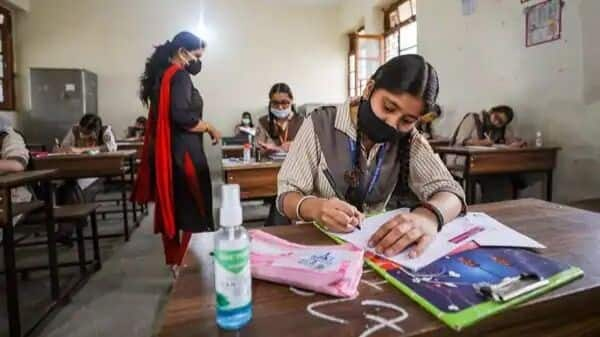
Add Classes 9-11 score to Class 12 results: NCERT's proposal
What's the story
The National Council of Educational Research and Training (NCERT) has suggested a novel evaluation model for Class 12 board examinations.
The proposed system, detailed in a report titled "Establishing Equivalence across Education Boards," recommends incorporating cumulative performance metrics from Classes 9 to 11 into the final Class 12 results.
The report was submitted by PARAKH, an NCERT-established regulatory center, to the Ministry of Education in July this year.
Curriculum changes
Proposed model emphasizes vocational and skill-based subjects
The proposed evaluation model emphasizes the importance of vocational and skill-based subjects. It suggests making these subjects mandatory for a well-rounded education.
The subjects include Data Management, Coding, Application Development, Artificial Intelligence, Music, Arts, and Crafts.
This recommendation aligns with the National Education Policy 2020's (NEP 2020) objective of promoting holistic learning.
Infrastructure needs
NCERT's report highlights need for improved school infrastructure
The NCERT report also underscores the need for improved school infrastructure and teacher performance evaluation.
It stresses on ensuring access to clean drinking water, well-equipped libraries, and sufficient sports facilities.
These measures are aimed at creating an environment conducive to effective learning in schools across India.
Assessment breakdown
New assessment system assigns specific weightage to marks
The new assessment system assigns specific weightage to marks from different classes.
Class 12 results would account for 15% of Class 9 performance, 20% from Class 10, and 25% from Class 11, with the remaining 40% based on Class 12 itself.
The evaluation for Class 12 will be split into formative and summative assessments. Formative assessments will include self-reflection, student portfolios, teacher assessments, project execution, and group discussions.
Credit system
New assessment design operates on a credit-based system
The new assessment design for Classes 9 to 12 will operate on a credit-based system, assigning weightage in terms of credits for each content unit.
Students in Classes 9 and 10 must accumulate 32 subject-specific credits (out of a possible 40), while those in Classes 11 and 12 must earn 36 subject-specific credits (out of a possible total of 44).
The remaining credits can be gained through online courses like MOOCs or research and community-based projects.